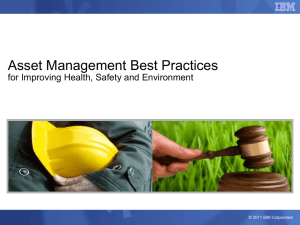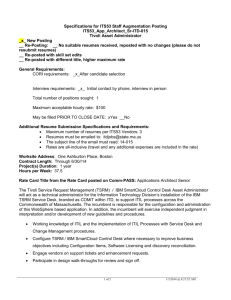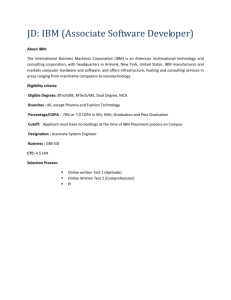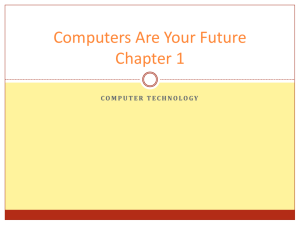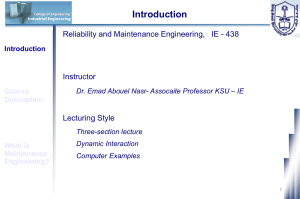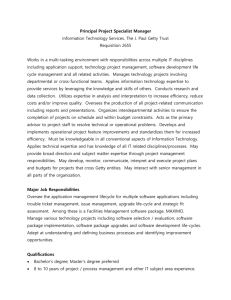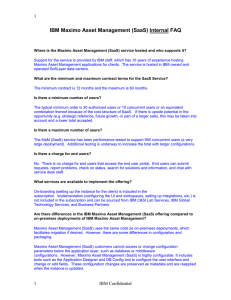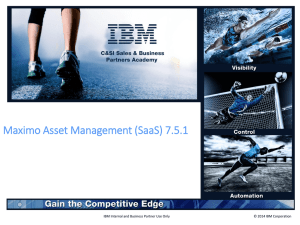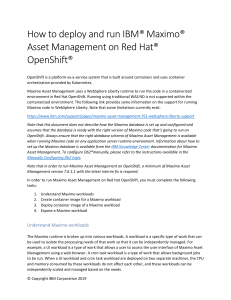Maximo Quality Development Summary-for Customers-v2
advertisement
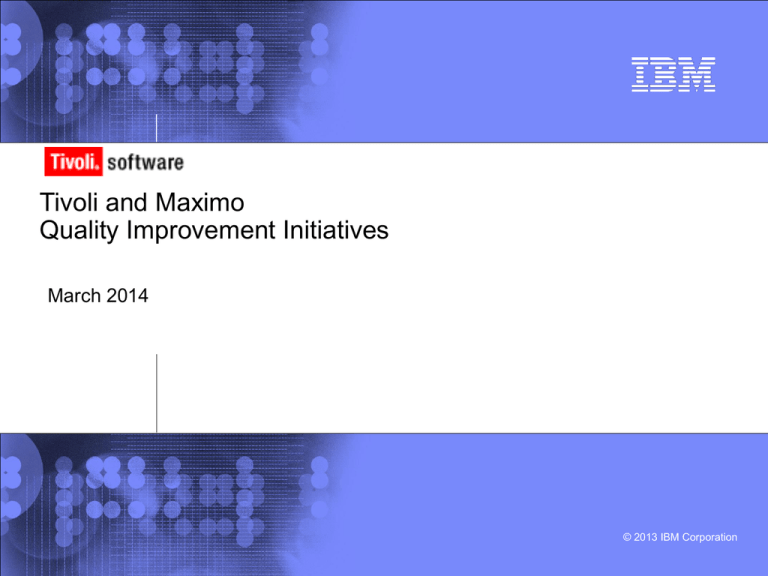
Tivoli and Maximo Quality Improvement Initiatives March 2014 © 2013 IBM Corporation Maximo / IBM Focus on Quality Prior to 2006, Maximo built on MRO’s tradition of quality Focus on Customers, Partnerships, Scenarios Iterative Software Development Lifecycle General processes in Design, Coding, Testing, Documentation Enhancements from IBM Phase based periodic checkpoints (Decision Check Points) Formal Councils and Reviews (Quality) Best Practices: – – – – Agile development methodologies “Shift Left” Test automation Defect causal analysis Result: Comprehensive, client focused Quality Management Program Corporate quality model at all levels of the organization Integration between business, development, and quality processes © 2013 IBM Corporation Documented IBM-wide Policies Corporate Quality Policy – Quality is recognized as a fundamental component of the value customers receive Corporate Instruction Continuous Quality Improvement (ET 105) All deliverables will set aggressive quality improvement targets better than the predecessor product release All product quality plans must address: – In-Process Quality Predictive Indicators (QPIs) measure and monitor product quality through the development cycle – A formal fact-based Quality Certification prior to product release – Post release goals for all problem reports reflect improvement of previous releases – Post release measurements and reporting to validate goals or plans established to address issues • Quality goals must be assessed throughout the overall offering lifecycle. Documented IBM Policies Page 3 © 2013 IBM Corporation Integrated Process for Continuous Quality Improvement Agile and Quality Best Practices Stakeholder feedback, Shift Left, UT, Automation Customer and Field driven improvements Customer Environments and Scenarios, Escape analysis Think 40 – Continuous Skills Development Top Development, Security, Quality and Process skills © 2013 IBM Corporation Driving Continuous Quality Improvement Quality Checkpoints (Plan, Risk, Cert, and Post-GA) Drives Continuous Quality Improvement from release to release. Sets targets, and tracks results and actions for: Quality Predictive Indicators (QPIs), Field Quality (APARs and PMRs) Key Initiatives: Consumability, Security, Serviceability .. “Quality Champions” program Trained Leaders supporting targets, training, and teams Review Quarterly divisional compliance and Quality targets Guides teams through Quality Checkpoint process Senior Development management Establishes specific and appropriate, division-level quality goals Reviews and Approves Quality plans and certifications, as applicable Reviews applicable measurements and initiates necessary corrective actions © 2013 IBM Corporation The Tivoli Agile Development Model Maximo utilizes Agile development best practices referenced in the “Tivoli Agile Development Model”. Agile: Uses continuous stakeholder feedback to deliver high-quality, consumable code through user stories and a series of short, stable, time-boxed iterations. • Each sprint is time-boxed Requirements Stakeholder Review/Input • Earliest sprints address greatest risks. • Smaller pieces delivered frequently. • Stakeholder feedback guides development Client Experience © 2013 IBM Corporation Maximo Standard Operating Procedures Library of Maximo procedures used to deliver high quality products with in the IBM SWG system. Examples include: AM020 - Software Development Life Cycle Guidelines AM040 - Third Party Software Supplier Selection and Management AM050 - Software Release Information DOC010 - Information Development Procedures DP071 - Software Source Control Procedure DP072 - Maximo Build Procedure DP073 - Unit Testing QA030 - Quality Assurance Test Procedure QA040 - Quality Criteria QA090 - Quality Assurance Automation Testing QM010 - Maximo Code Review Procedure QM010 - Maximo Formal Code Inspection Procedure © 2013 IBM Corporation Summary Maximo’s strong tradition in customer partnerships and quality completely align with IBM SWG’s Quality Management System The Maximo solution leverage an integrated management system driving continuous improvement targets and actions, with the right skills and best practices, and strong executive support. Results: in improved customer experience and field quality. © 2013 IBM Corporation

